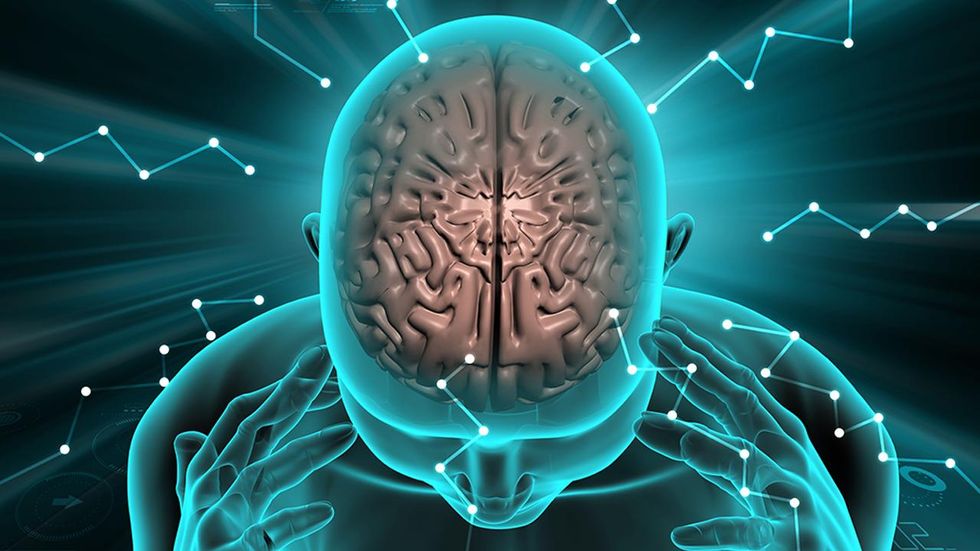
Scientists have developed new technology that they say is able to translate thoughts into words. ( Brijith Vijayan/Getty Images)

Scientists have developed a new mind-reading machine that translates what you are thinking and instantly displays your thoughts as text, the Daily Mail reported.
Here’s how it works: Electrodes are implanted in the brain and linked to a computer that translates electrical signals transmitted by the brain.
Scientists claim the machine can interpret the consonants and vowels we use to form thoughts. The Daily Mail explains:
The machine registers and analyses the combination of vowels and consonants that we use when constructing a sentence in our brains. It interprets these sentences based on neural signals and can translate them into text in real time.
Finally, these “thoughts” are translated into words, which appear on a monitor screen.
Scientists who developed the machine claim it can translate words it has never interpreted before. And they say the machine has at least a 90 percent accuracy rate.
Researchers hope the machine can assist medical patients with conditions that don’t allow them to speak or move.
The device was developed at the University of California and was featured in the Journal of Neural Engineering.
Other "mind reading" devices have been developed in the past, but this one is unique, according to the scientists who developed it.
Study leader David Moses said: "No published work has demonstrated real-time classification of sentences from neural signals. Given the performance exhibited by [the machine] in this work and its capacity for expansion, we are confident in its ability to serve as a platform for the proposed speech prosthetic device."
As the Daily Mail noted, there are fears the device could “cause problems if secret thoughts are exposed accidentally.”
One year ago, the Daily Mail reported that a “device that reads people’s minds through their brainwaves” could be linked to smart phones within the next several years.
Developers claim the device operates as a “telepathic typewriter" that automatically transcribes what we are thinking.
“Artificial intelligence” and other new technologies are often unveiled as humanitarian gifts to the world. Giving people who cannot move or speak the ability to communicate is in fact a very noble and compassionate cause.
But what else might mind-reading technology accomplish?
In the above example, we could be just a few years away from smart phones being able to pick up on our thoughts and translate them into words. If that happens, where would the information be stored and who or what could access it? How many phone app developers would include this new technology in their apps knowing that few if any people would ever read the privacy terms?
Privacy advocates have repeatedly warned us that many of our electronic devices are in essence little more than high-powered surveillance tools. So, are the critics just paranoid or do they understand how the technology might be abused?
George Orwell’s classic dystopian novel, "1984," paints an extreme picture of a “surveillance state” gone wild. The main character, Winston Smith, realizes at one point that the only privacy he has is inside of this own mind.
“Nothing was your own except the few cubic centimeters inside your skull,” he said.
That was fiction, but our reality is that even our thoughts may not be our own.